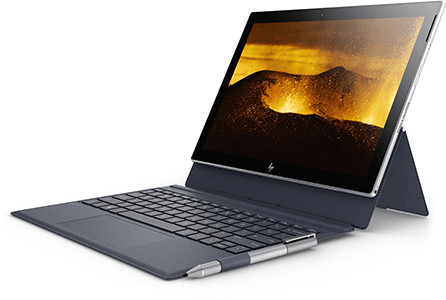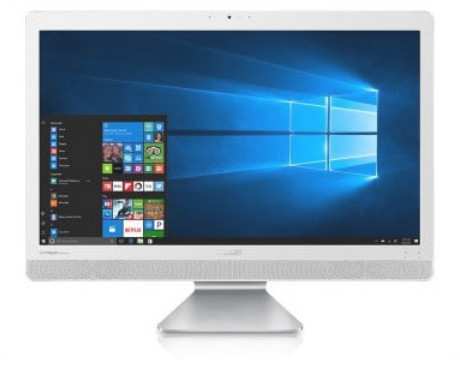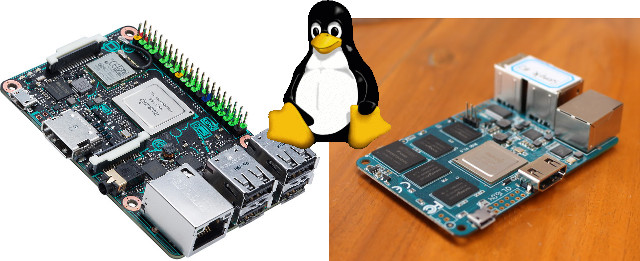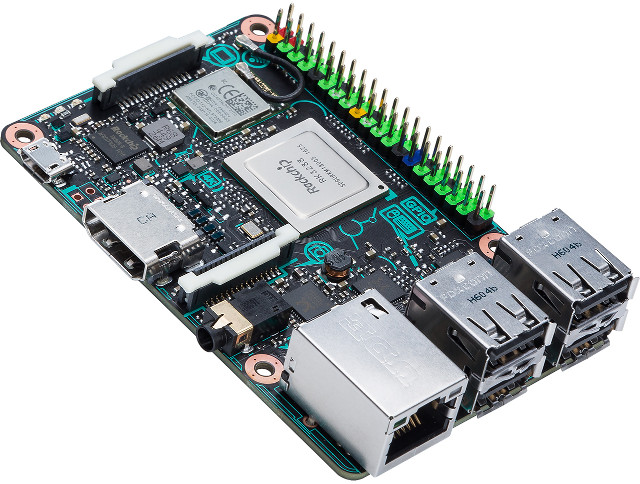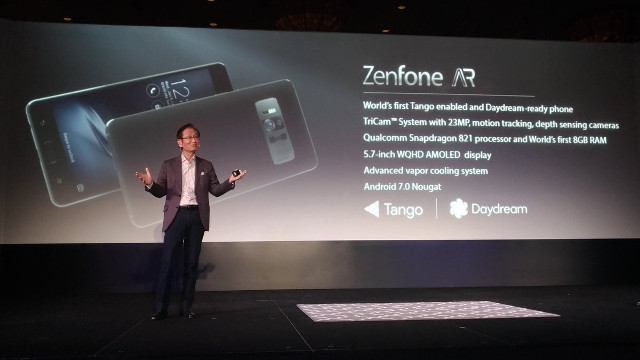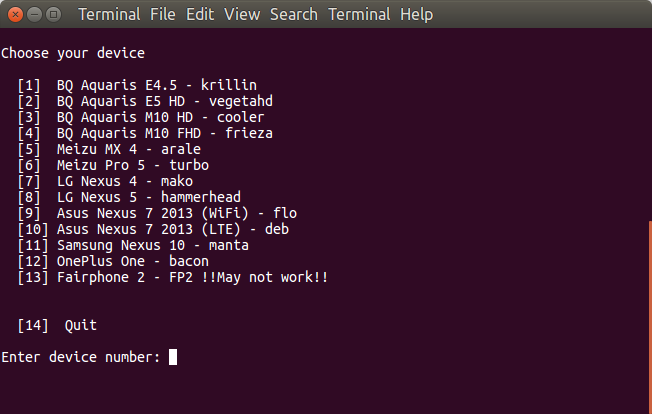Qualcomm and Microsoft showcased some Snapdragon 835 based Windows 10 “Mobile PCs” at Computex 2017 last June, and while the press was allowed film the demo, the device could only be operated by a Qualcomm employee. But both companies and their partners have made progress, and at the Snapdragon Technology Summit, Qualcomm announced “Always Connected PCs” which will run Windows 10, be always on and always connected at Gigabit LTE speeds, and support all-day battery life while keeping thin and fanless designs. all while incorporating Windows 10. HP and ASUS unveiled their very own “Always Connected PCs”, respectively Envy X2 and Novago TP370. What I used to call laptop or in this case 2-in-1 hybrid (laptop) is now apparently called “Always Connected PC”, but in any case let’s have a closer look at both devices. HP Envy x2 (2017) Specifications: SoC – Qualcomm Snapdragon 835 Mobile Processor @ 2.6GHz with Adreno […]
Asus WA039T All-in-One PC is Powered by Intel Pentium J4205 Apollo Lake Processor
Intel Pentium N4205 is the most powerful Apollo Lake processor launched by Intel with four cores up to 2.6GHz (turbo), and 18 EU HD graphics, but so far I have not seen many products with the processor, with only ASRock J4205-ITX motherboard and Beebox J4205 mini PC. So I went to Aliexpress, and nothing at all shows up for J4205, I had better luck on Alibaba with Unistorm / ACEPC AK1 mini PC apparently also having Pentium N4205 as an option (for OEM only), and several industrial computer and motherboards. But none of those products seem to be easily purchasable just yet. A final search on GearBest led me to their one and only J4205 based product: Asus WA039T AIO PC, so let’s have a look. Asus WA039T AIO computer specifications: SoC – Intel Pentium J4205 quad core “Apollo Lake” processor @ 1.50 / 2.60 GHz with a 18 EU Intel […]
Linux 4.12 Release – Main Changes, ARM & MIPS Architectures
Linus Torvalds has just released Linux 4.12: Things were quite calm this week, so I really didn’t have any real reason to delay the 4.12 release. As mentioned over the various rc announcements, 4.12 is one of the bigger releases historically, and I think only 4.9 ends up having had more commits. And 4.9 was big at least partly because Greg announced it was an LTS kernel. But 4.12 is just plain big. There’s also nothing particularly odd going on in the tree – it’s all just normal development, just more of it that usual. The shortlog below is obviously just the minor changes since rc7 – the whole 4.12 shortlog is much too large to post. In the diff department, 4.12 is also very big, although the reason there isn’t just that there’s a lot of development, we have the added bulk of a lot of new header files […]
MQMaker MiQi & ASUS Tinker Boards Get Linux 4.11 with 3D Graphics Acceleration
One day after the release of Linux 4.11, developer “Miouyouyou” has released Linux 4.11 for Rockchip RK3288 platforms such as MQMaker MiQi and ASUS Tinker boards with some patchsets for ARM Mali r16p0 kernel drivers, ARM fbdev, and to improve performance. The kernel has been tested with the Mali User-space r12p0 drivers for fbdev and wayland written for Firefly-RK3288, and some OpenGL ES 3.1/3.2 samples could successfully run on the board. 3D graphics acceleration does not work in X11 however. Miouyouyou also plans to add support for Rockchip VPU code, as well as ARM gator, and document how to use ARM DS-5 Streamline for OpenGL ES 2.x/3.x debugging. If you have a MiQi or Tinker board running Debian, you can try the kernel by adding beta.armbian.com Debian repository to your apt source file, and installing the following packages:
|
1 |
apt install linux-image-dev-rockchip linux-headers-dev-rockchip linux-dtb-dev-miqi |
Via linux-rockchip G+ community. Jean-Luc Aufranc (CNXSoft)Jean-Luc started CNX Software in […]
ASUS Tinker Board’s Debian & Kodi Linux Images, Schematics and Documentation
We discovered ASUS Tinker Board powered by Rockchip RK3288 processor earlier this year via some slides hidden in a dark corner of the Internet… ASUS has been incredibly quiet about it, but as the board has finally started to sell in Europe on sites like CPC Farnell UK, Proshop (Denmark), or Jimm’s (Finland) for the equivalent of $57.5 without VAT or $69 including VAT, and more technology sites have started to write about it. So people have been buying the board, and one even uploaded an unboxing video. One interesting part is the the top comment from the uploader in that video: Currently, a £55 paperweight as I can’t seem to find a link to the OS image anywhere. And indeed, ASUS appears to have launched a board without any support website, firmware image and documentation. Maybe that’s why they are quiet about it. But after using some of my […]
Vapor Cooled ASUS Zenfone AR Smartphone Comes with 8GB RAM, Supports Google DayDream and Tango
ASUS Zenfore AR is an interesting beast, powered by a Qualcomm Snapdragon 821 processor, it’s the first processor I’ve heard to come with 8GB RAM, and also the first to support both Google DayDream virtual reality, and Google Tango 3D depth sensing camera. On top of that, it’s allegedly cooled by an “advanced vapor cooling system”. Zenfone AR (ZS571KL) specifications: SoC – Qualcomm Snapdragon 821 quad core processor up to 2.35 GHz with Adreno 530 GPU System Memory – 6 to 8 GB LPDDR4 RAM Storage – 32, 64, 128 or 256GB UFS 2.0 flash, micro SD/SDCX card slot up to 2TB, 5GB ASUS WebStorage for file, 100GB Google drive for 2 years Display – 5.7″ WQHD (2560×1440) AMOLED display with Gorilla Glass 4, 10-finger capacitive touch Camera Tricam system with 23MP autofocus, motion tracking, and depth sensing cameras (Tango) 8MP front-facing camera with autofocus dual LED flash Video – […]
ASUS Tinker Board is a Raspberry Pi 3 Alternative based on Rockchip RK3288 Processor
Regular readers may remember MQMaker MiQi board, a $35 (and up) development board powered by Rockchip RK3288 quad core ARM Cortex A17 processor, based on Raspberry Pi 3 form factor, but much faster according to benchmarks. Sadly, the board’s crowdfunding campaign was not that successful, possibly because of the “its’ a 2-year old processor” syndrome. But now, Minimachines has found that ASUS has designed a very similar board, dubbed Tinker Board, with an extra WiFi and Bluetooth LE module, audio jack, MIPI DSI connector, and a few other modifications. Asus Tinker Board specifications (bold highlights and strike-through show differences with MiQi board): SoC – Rockchip 3288 quad core ARM Cortex A17 up to 1.8 GHz with Mali-T764 GPU supporting OpenGL ES 1.1/2.0 /3.0, and OpenCL 1.1 System Memory – 2GB LPDDR3, dual channel Storage – 8 or 32 GB eMMC flash + micro SD slot Video output & Display I/F 1x HDMI 2.0 up to 3840×2160@60p […]
Magic Device Tool Helps You Switch Between Android and Ubuntu on Supported Phones
There have only been a few phones released with or supporting Ubuntu so far, and those phones will normally be able to run Android too since Ubuntu Touch relies on Android drivers, and you may decide that Ubuntu is not for you and switch back to Android, or the contrary, if you’ve purchased an Android phone, you may want to install Ubuntu instead. In order to simplify the task of installing operating systems, Marius Quabeck has developed “Magic Device Tool“. As you can see from the screenshot above, 13 phones and tablets are currently supported. You’ll need a computer with Ubuntu 15.04 or greater to install the tool, and I’ve done so on Ubuntu 16.04:
|
1 2 3 4 |
git clone https://github.com/MariusQuabeck/magic-device-tool.git cd magic-device-tool chmod +x launcher.sh ./launcher.sh |
The script will also install phablet-tools if it is not already installed, so if you are not root, you’ll need your account to be member of sudoers. Once the initial setup is done, you’ll […]


